Case study: Development of Mathematics textbook in Papua New Guinea
IC Net Ltd. and GAKKO TOSHO CO., LTD. are respectively carrying out 2018 EDU-Port Japan certified Project (IC Net) and supported project (GAKKO TOSHO) in Papua New Guinea. Papua New Guinea have been developing science and mathematics textbooks and teachers’ guidebooks for the third to sixth grades of primary education (images shown below). So, we have provided the support and technical guidance for the development of textbooks and teachers’ guidebook with Ministry of Education in Papua New Guinea, collaborating with Naruto University of Education, Okayama University and University of Tsukuba with the support of Japan International Cooperation Agency (JICA). Science and mathematics textbooks mostly refer to Japanese textbooks and teachers’ guidebooks are developed based on Japanese lesson styles to expand “Japanese style” classes in Papua New Guinea. These activities are exactly in collaboration with industry, academia and government.
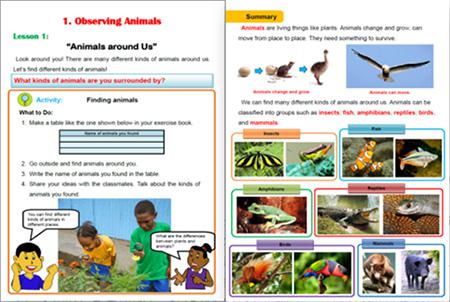
One page of science textbook |
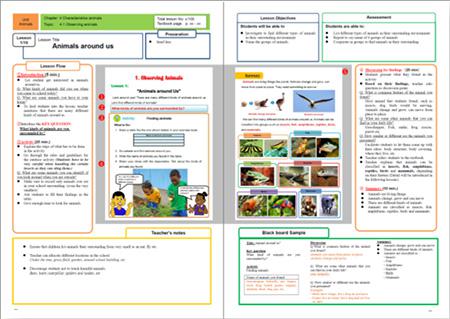
Teachers’ guide of the textbook on the left |
In EDU-Port Japan certified project, we develop a unit (end-of-chapter) test with the Ministry of Education based on the developed textbooks and confirm children’s learning achievement by using the textbooks. In addition, we plan to analyze the test results, identify concepts which are easy to make mistakes for children, and discuss how to teach the concepts with the Ministry of Education to provide feedback not only with children but also with schools and teachers. We believe that these processes will establish a PDCA cycle of the development and practice of textbooks (curriculum), measurement of children’s academic ability, feedback, improvement of pedagogy and the concept of curriculum management as implemented at Japanese schools. Besides, in EDU-Port supported project implemented by GAKKO TOSHO, they support our project by using ICT to train teachers through video on the concepts and experiments which are found difficult to teach from the analysis results.
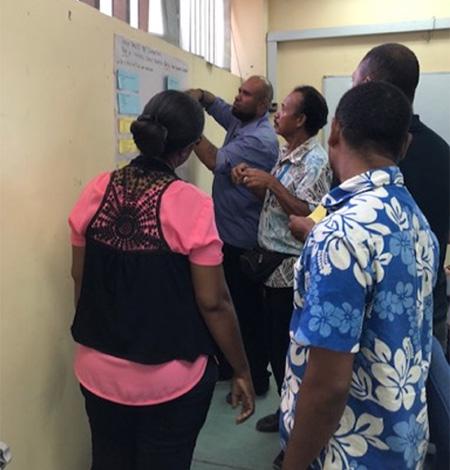
Workshop to develop the test with MoE staffs |
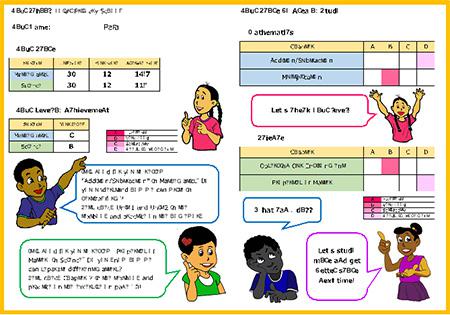
Feedback sheet of the developed test (For children) |
In 2018, we developed the test and conducted the trial of the test. Surprisingly, we faced many cases that the third grader students cannot add two-digit numbers with three digits and they count three-digit addition with hands. The test results were miserable. Even more surprising thig was the response of the Ministry of Education and school teachers. They said, “Children do not understand at all even though I taught them properly!” “Children don’t understand textbooks!” Some teachers start to get angry with their eyes rounded. . .
We reply to them, “It’s not the children but the way you teach that caused these results.”
Looking at the results of the children’s learning achievements, Ministry of Education and teachers have finally begun to realize their responsibilities and work together on what to do.
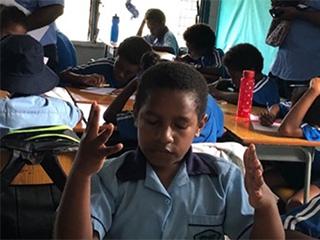
Children who calcurate 3-digit addition with fingers |
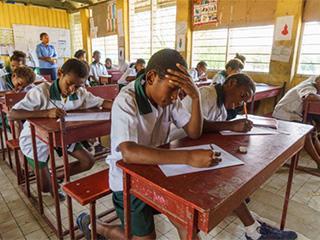
Implementation of the test |
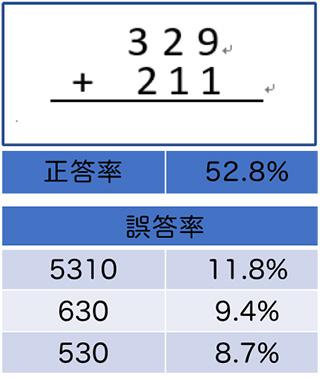
Sample questions of the test:Correct answer rate and wrong answer example |
In 2019, we improved the teaching method of utilizing textbooks, and also improved the tests of which we conducted the trial in 2018. In this September, we expanded the test to to approximately 370 children, 10 classes in elementary schools in the capital, Port Moresby. The test is currently being analyzed and will be taken back to Papua New Guinea in December for feedback to the Ministry of Education, schools, children, parents and others. Please expect the result!
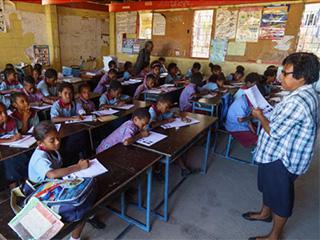 |
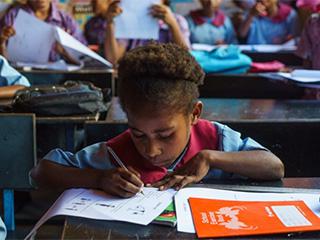 |
Implementation of the test in September,2019
As an aside, Papua New Guinea is a treasure trove of biodiversity, a country of biodiversity. There are many creatures which are not found in Japan, such as the bird of paradise, the world’s largest butterfly and the golden beetle. So, it was very difficult to make science questions, especially biological questions. We were distracted by the answer to the question, “What are the creatures living in the river?” Please solve the problem below. In fact, there are varieties of crocodiles, sharks, turtles which live in the river and sea in Papua!
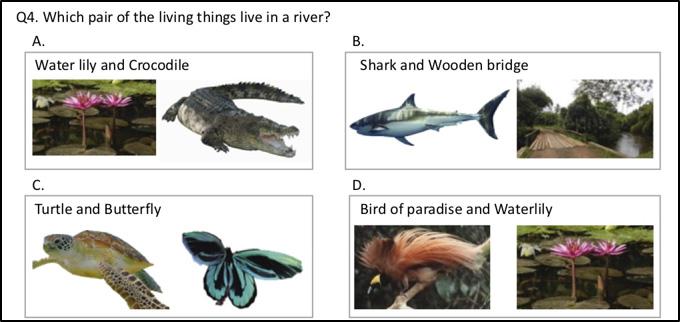
(2018 EDU-Port certified project: IC Net Ltd.)







